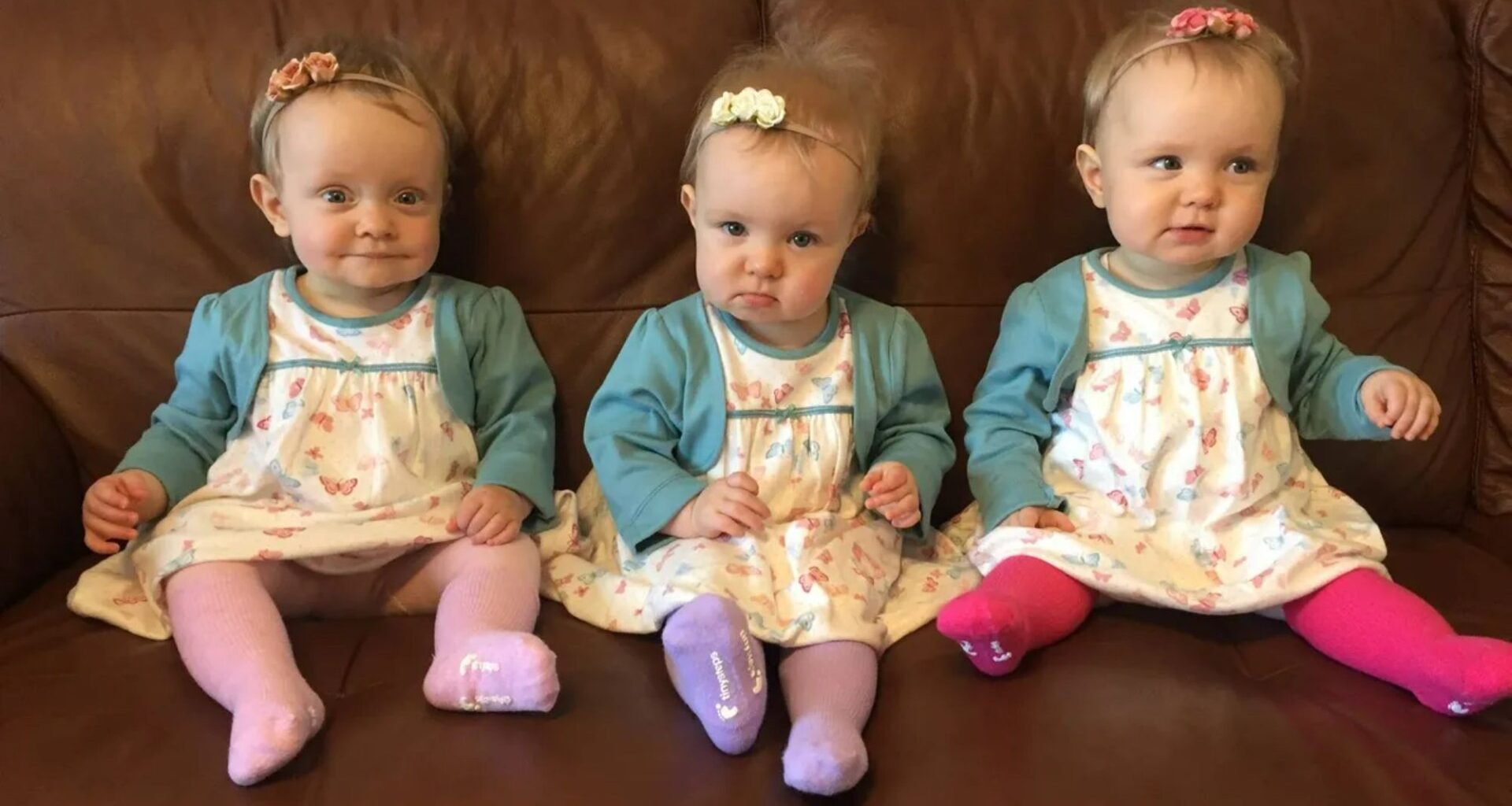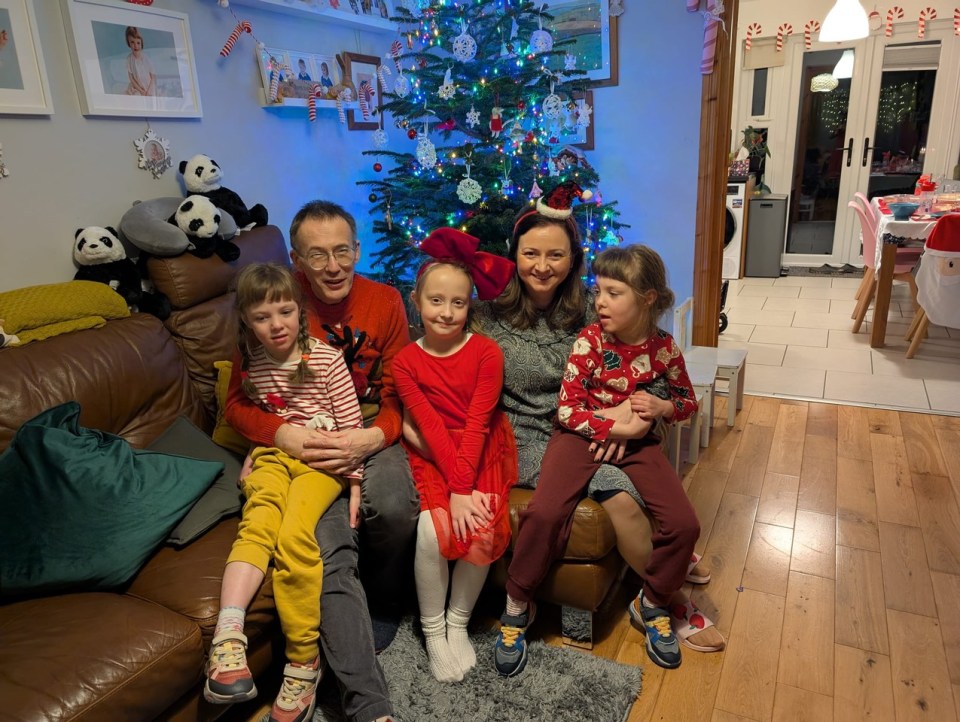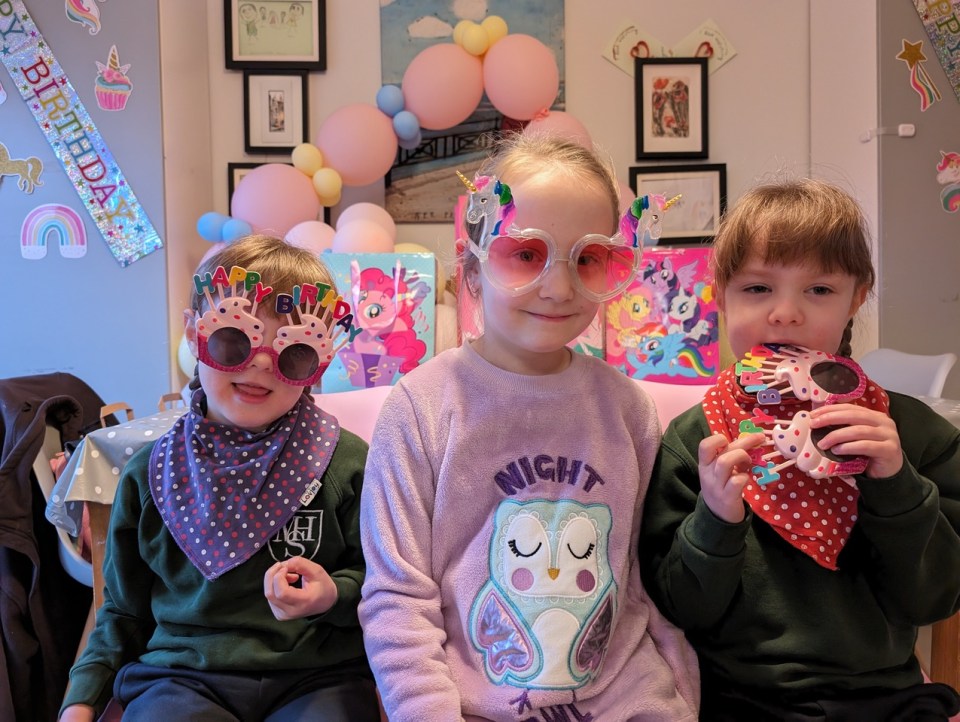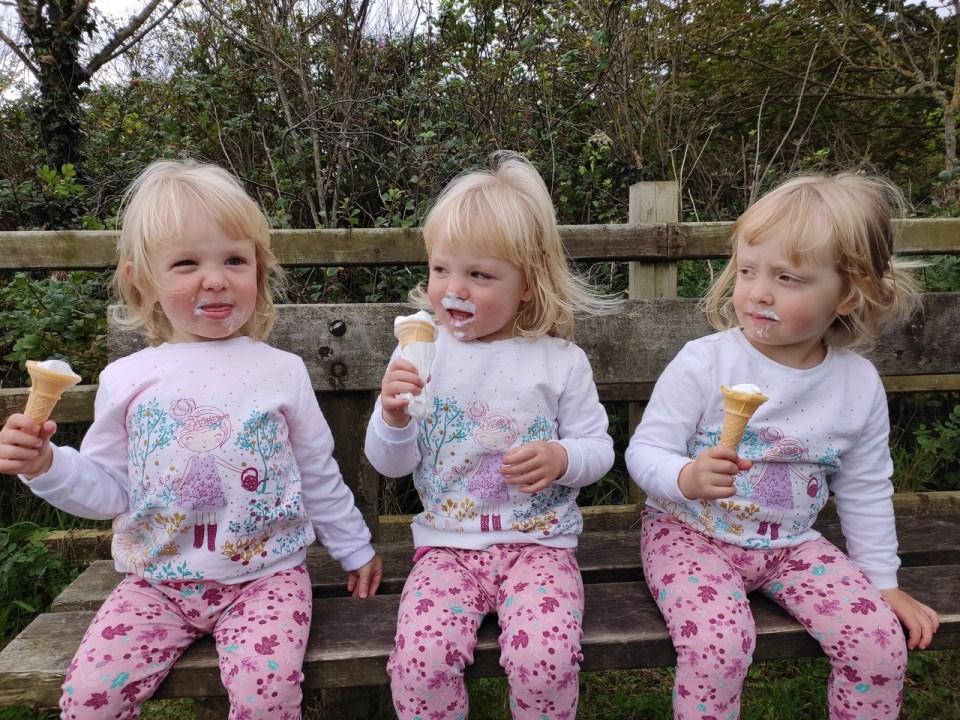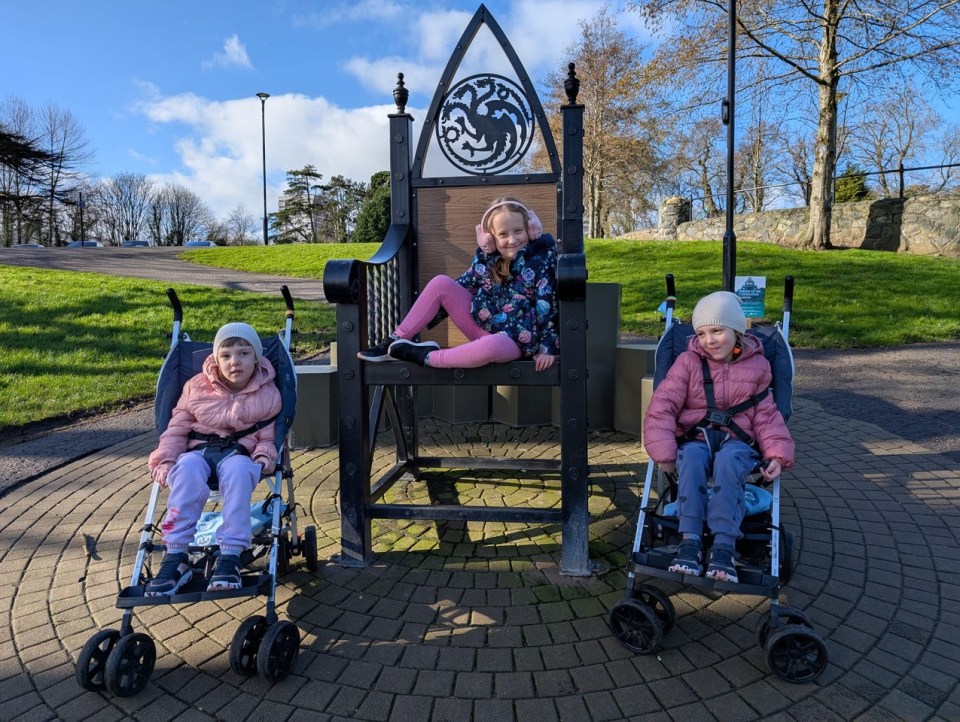WHEN Pola Walotka asked ‘Mummy, will they get better?’ her mother Marta was forced to give her a heartbreaking answer.
Tragically, she had to tell her seven-year-old daughter that her triplet siblings would never recover.
9
Daniel and Marta with (L-R) Nina, Pola and Lena on Christmas Eve 2024Credit: Supplied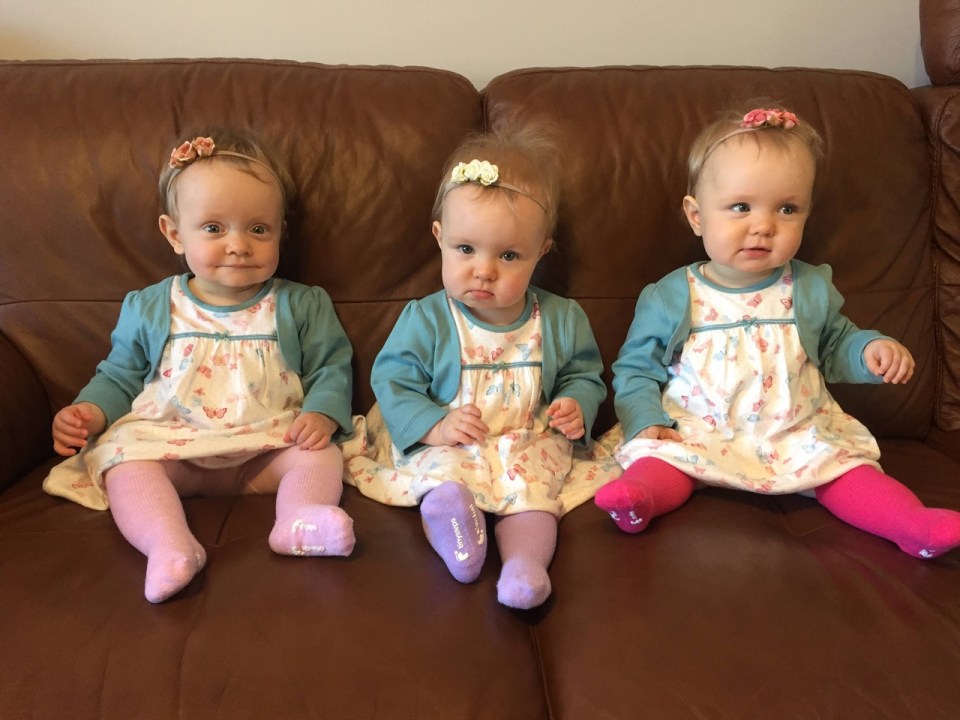
9
Pola (left) with sisters Lena and Nina, who suffer from the rare condition Batten’s diseaseCredit: Supplied
Lena and Nina have a rare condition that will eventually rob them of their lives – and the life they share with triplet sister Pola.
Mum Marta, 44, who organises play activities for the council, and lives in Belfast with husband Daniel, an IT programmer said: “It broke my heart when she asked me that question.
“But we just take each day as it comes, and we enjoy the time that we have together. Pola is fantastic with her sisters,. She lies next to them and holds their hands and she reads stories to them. They are her world.”
When Marta first held her newborn triplet daughters, in February 2018, she had been full of hope for the future.
She and husband Daniel, 49, had been trying unsuccessfully for a baby for six years, and had already had two failed IVF attempts.
So when daughters Lena, Nina, and Pola were born, they thought their battle was behind them and they could start life as a family of five.
But a cruel twist of fate has destroyed their dream of a happy future – after two of the girls were diagnosed with Batten’s Disease.
It strikes around the age of two, with the onset of dementia-like symptoms, and eventually leads to severe disability and premature death.
It means that triplet Pola will eventually be left to grow up without her adored sisters Lena and Nina.
Marta said: “The three of them have an incredible bond, even though the girls can’t communicate now, Pola instinctively knows what they want.”
‘Worst disease you’ve never heard of’ steals little Sadie’s ability to walk, talk, eat and sing at just 7 – after she hit all milestones 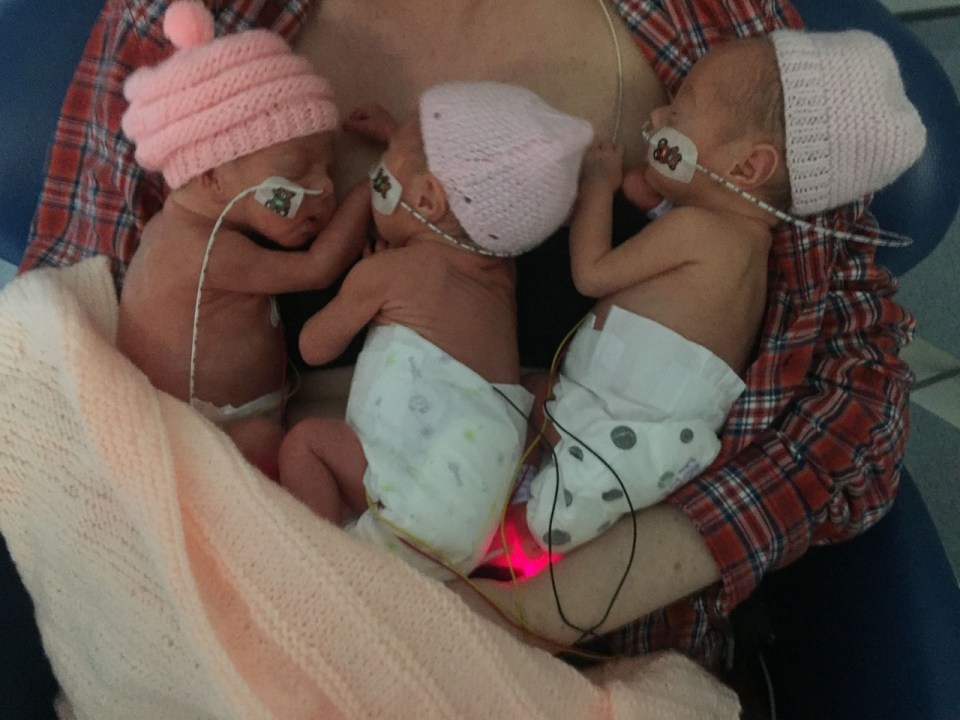
9
The triplets were born in February 2018Credit: Supplied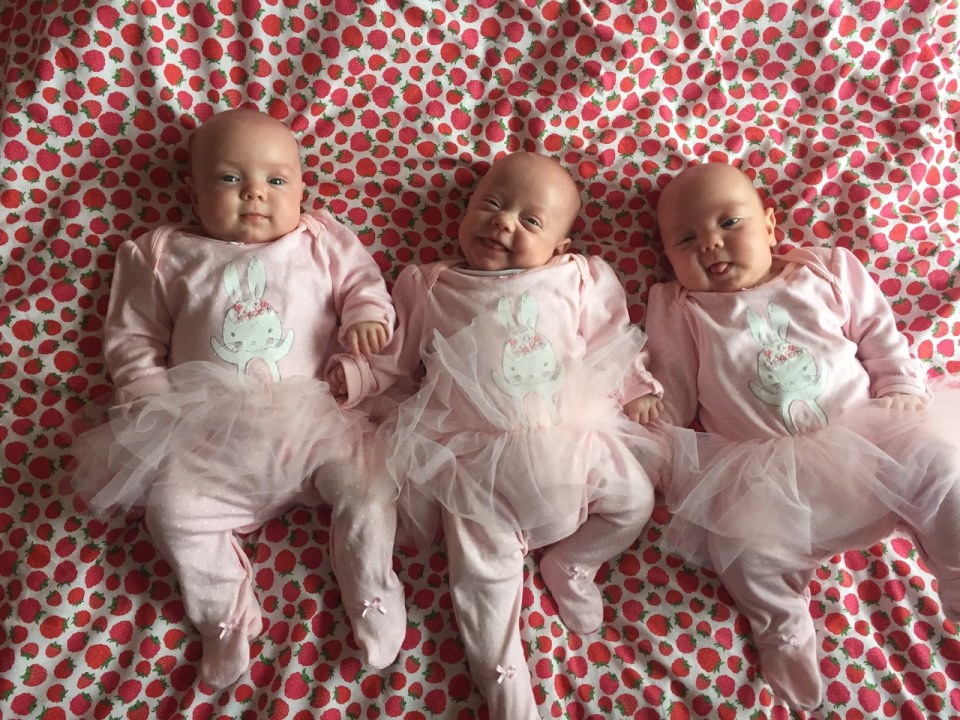
9
They were thriving at five monthsCredit: SuppliedFertility battle
The couple got married in 2007 and waited five years before trying for a family in 2017. When they were unsuccessful, they went for tests, but nothing was found.
Marta said: “It was put down to unexplained infertility, with work, stress and lifestyle playing a part. So we decided to try fertility treatment and went to a clinic for help.”
They underwent their first round of IVF, where doctors extracted Marta’s eggs, which were fertilised with Daniel’s sperm and put back into her womb,
It failed on the first two attempts, which was heartbreaking for the couple.
Marta said: “We never gave up. It was devastating when it didn’t work, but we wanted a baby so much that we were determined to carry on going.”
On the third attempt doctors put back two embryos and two weeks later Marta made the amazing discovery that she was pregnant.
She said: “We were absolutely thrilled that it had happened at last for us, after all these years of trying. A few weeks later we were one holiday in Portugal and I started bleeding. We were terrified we were going to lose them and went to a local hospital where they carried out a scan.
“It was then that I found I was pregnant with twins. We couldn’t believe it. They were both healthy and they showed us the scan picture with two little sacs.”
9
The girls celebrate their sixth birthday in 2024Credit: Supplied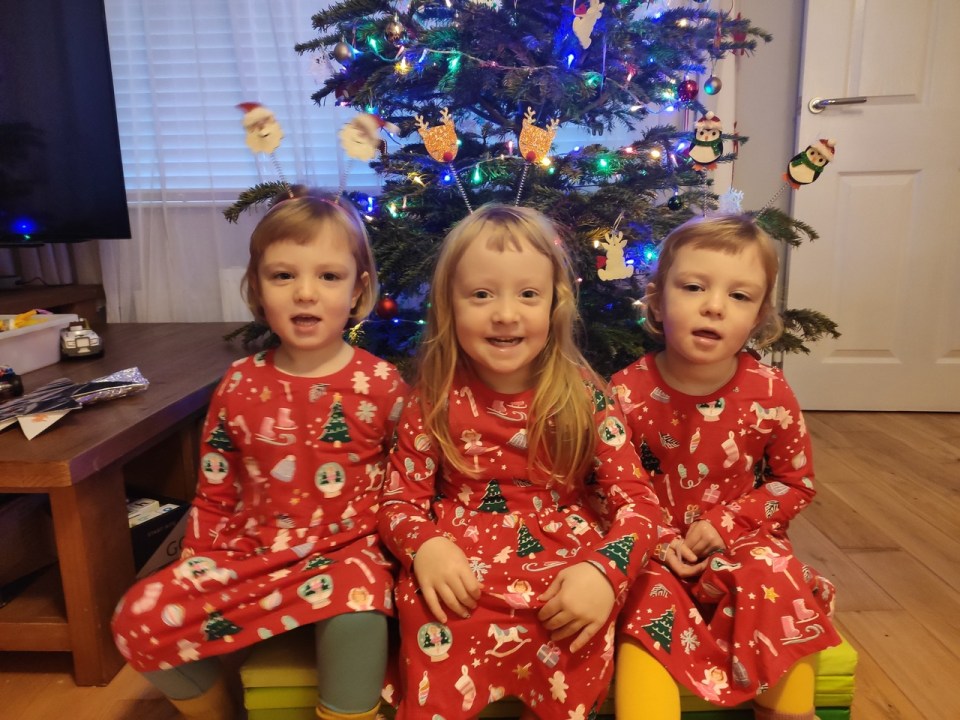
9
(L to R) Nina, Pola and Lena at Christmas in 2021Credit: Supplied
Four weeks later, back home in Belfast, Marta went for another scan and got a massive shock.
She said: “The sonographer put the scanner on to my stomach and said ‘Do you know what that is…..it’s another one. You’re actually pregnant with triplets.”
“I couldn’t say anything I was so shocked. We’d only just got over the surprise of having twins, and now we were being told that I was actually pregnant not with one baby…but three!’
Marta’s pregnancy went smoothly, apart from morning sickness, and even through it was deemed a risky pregnancy because one of the embryos had split, causing identical twins, the triplets were all healthy.
It was a death sentence. It was like a nightmare.
Marta Walotka
She said: “I was scanned regularly, and Daniel and I couldn’t wait to meet our girls.”
At 29 weeks pregnant, Marta woke up and discovered her waters had broken. She was taken to hospital where the doctors gave her steroid injections to try and help develop the babies’ lungs and then they were delivered by emergency caesarian.
She said: “When they finally arrived, they were so tiny, but after only eight weeks in hospital we were allowed to bring them home. They had done so well.
“I was breastfeeding them all and they were thriving. Mum came to stay with us to help and they were meeting their milestones.
“They were a little behind, but that was to be expected with such a premature birth. Lena and Nina were even doing better than Pola, and crawling before her.”
9
The girls were nearly three when the first symptoms occurredCredit: Supplied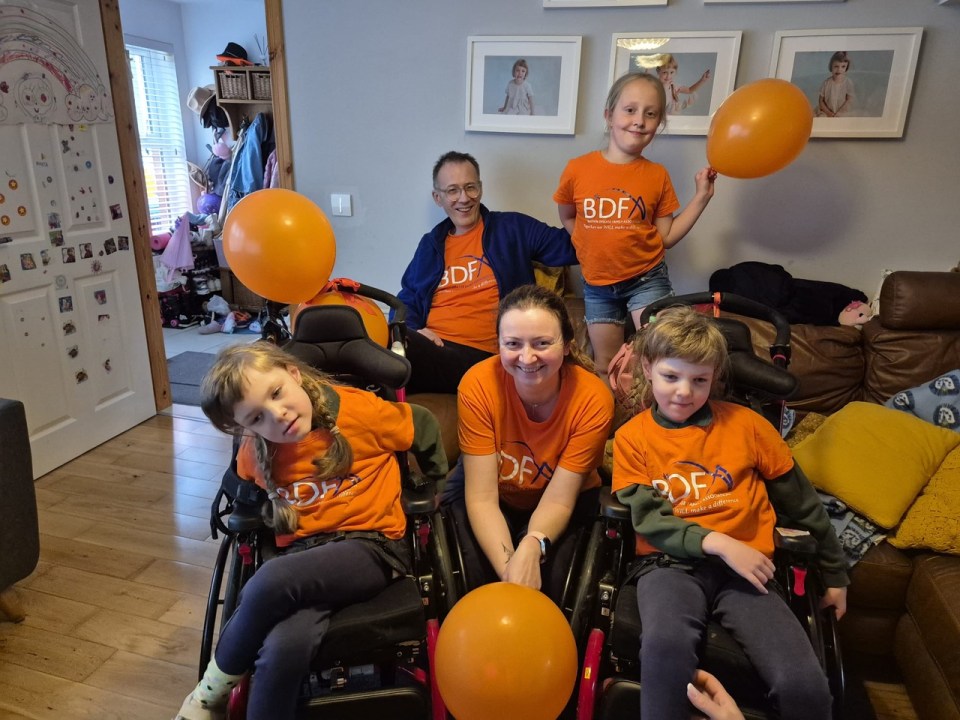
9
The girls have tragically lost their speech and sight because of the cruel diseaseCredit: SuppliedDevastating diagnosis
The girls grew normally until they were nearly three years old when suddenly, on Halloween 2020, Lena had a seizure.
Marta said: “We were at home, and suddenly she stopped moving and her eyes rolled back in her head. It was terrifying. We called an ambulance and paramedics came and checked her out, but by that time she was fine.
“We thought it was a one-off but then just a few days later we got a called from their activity centre where they went for childcare, to say that one of the girls was having a seizure.
“We rushed over, thinking it was Lena again, but actually it was Nina. Saliva was coming out of the side of her mouth and her arm was stiff.
“An ambulance arrived and took her to hospital where she was observed and the doctors said they thought she was having a panic attack. So we were allowed to bring her home, but then it kept on happening.”
Doctors eventually diagnosed both with epilepsy and they were put on medication and given ECG and MRI scans in January 2021, then were referred for genetic testing too.
From being chatty, bubbly little toddlers, they have now lost their speech, they are in wheelchairs and they lost their vision two weeks ago.
Marta Walotka
In December that year, the couple received a devastating phone call from the consultant, who told them that both girls had Batten’s Disease.
Marta said: “We had never even heard of it, and had no idea what it was. When we looked at it on the internet, we were terrified. It was a death sentence. It was like a nightmare.
“We had three lovely daughters who were so smiley, happy and chatty. How could this possibly be happening to them?”
What is Batten’s Disease?
Batten’s Disease is a rare inherited neurodegenerative disorder that primary affects the nervous system and often starts in childhood. There are several different types of the condition.
It causes a build up of waste material in the brain cells, leading to decline in various functions, such as vision, motor skills, and cognitive decline, eventually leading to premature death.
Organisations like the Batten Disease Family Association provide valuable resources and support for individuals and families affected by Batten disease.
The girls were put on an enzyme replacement drug called Brinerua, which isn’t a cure for the condition but can ease symptoms.
While it has helped the girls, a recent ruling means the drug will no longer be given to any new patients, even though existing patients can continue on it.
Marta said: “It has given us much better quality time with our girls and slowed down the progression of the disease. It seems very unfair that families who are going to go through what we have won’t be able to have access to this drug.
“It’s a horrific disease and it’s taking the life away from our daughters. From being chatty, bubbly little toddlers, they have now lost their speech, they are in wheelchairs and they lost their vision two weeks ago.
‘It’s heartbreaking. Pola is there for them every step of the way, so they all still have each other. They all have the most incredible bond and are making the most of that whilst they can.”
9
Lena and Nina are now in wheelchairsCredit: Supplied
